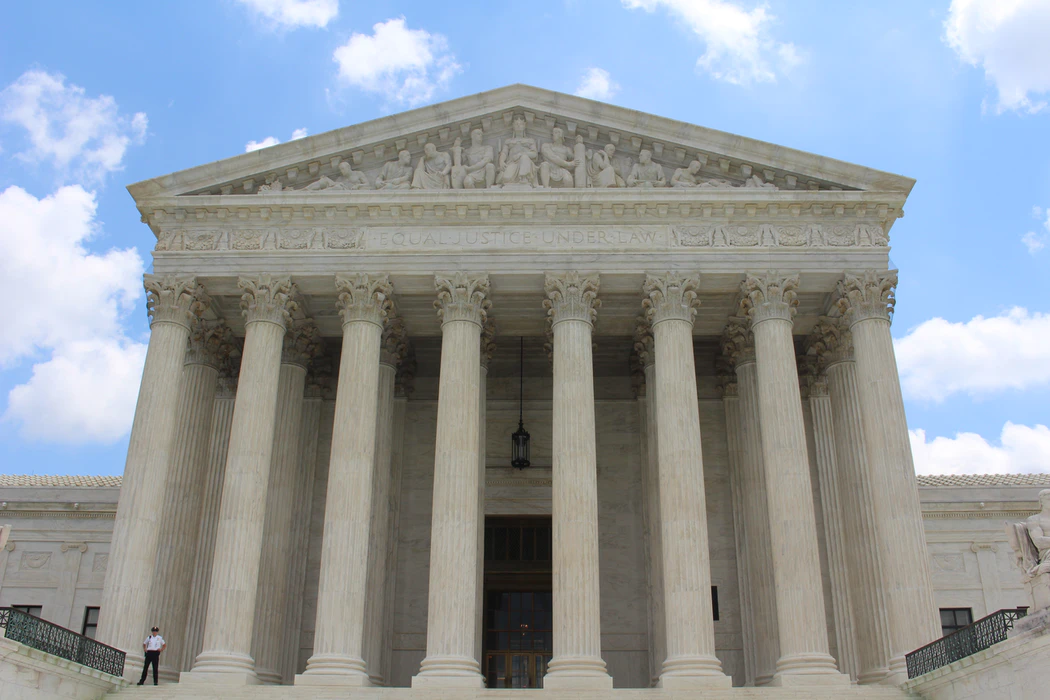As some of our friends and colleagues know, our attorneys, together with Meshbesher & Associates, were recently involved in a case before the United States Supreme Court. The case stemmed from the trial and conviction of Byron Smith in Morrison County, Minnesota, in the deaths of two people that entered Smith’s home in November, 2012. The trial, which lasted approximately two weeks, received widespread attention throughout the state and nation. At the heart of the trial was the so-called “Castle Doctrine,” which is a rule of law allowing a person to use deadly force in the defense of their home when faced with a burglary or other violent conduct. Despite Smith’s reliance on this doctrine, and an additional claim of self-defense, he was convicted by a Morrison County jury of two counts of first-degree murder, and thereafter sentenced to life imprisonment.
During the course of the trial, the trial judge closed the courtroom to all spectators and held closed proceedings to discuss an evidentiary issue with the attorneys. The rationale for the closure was a concern by the judge that the subject matter of the proceedings would be reported on by the press, and potentially reach the knowledge of the jurors, who would then be prejudiced against the prosecution. Smith, through his attorneys, objected to the closure, stating to the judge that Smith had a right to a public trial. Smith’s objection was overruled, and the trial continued.
On appeal to the Minnesota Supreme Court, Smith claimed that his Sixth Amendment right to a public trial was violated when the trial court judge closed the courtroom during his trial. The Minnesota Supreme Court disagreed, ruling that the trial closure was “administrative” in nature, and that no Sixth Amendment violation occurred. Thereafter, Smith filed a petition for a writ of habeas corpus in the United States District Court, District of Minnesota, claiming that the Minnesota Supreme Court’s decision was contrary to clearly established Federal law, or alternatively, that the Minnesota Supreme unreasonably applied clearly established Federal law. Chief Judge John R. Tunheim ultimately denied Smith’s petition, but did grant a certificate of appealability, permitting Smith to appeal the denial of his petition to the United States Court of Appeals for the Eighth Circuit. On appeal, the Eighth Circuit Court of Appeals affirmed Judge Tunheim’s order.

In Smith’s case, the petition for a writ of certiorari was “relisted” several times, leading our law firm to believe that one or more justices were interested in granting review. However, the case was ultimately denied review by the Court. The interesting twist in the case was the unusually long dissent that Justice Sotomayor wrote from the Court’s denial. According to Justice Sotomayor, the Court should have granted review in Smith’s case. Not only that, Justice Sotomayor wrote that the Court should have summarily reversed the Eighth Circuit Court of Appeals, and remanded Smith’s case to the Minnesota state trial court for retrial. Below are selected portions of Justice Sotomayor’s dissent.
Today’s decision denying Smith’s request for plenary review is the last in a long series of misguided rulings. First, the Minnesota trial court violated the Sixth Amendment by closing the courtroom without adequate justification. Next, the Minnesota Supreme Court wrongly exempted the closed proceeding from the Sixth Amendment entirely, relying on a brand new administrative-proceeding exception that finds no basis in the Constitution or this Court’s precedent. Then, by creatively redefining the meaning of “dicta,” the Eighth Circuit erroneously concluded that the Minnesota Supreme Court’s decision was not contrary to clearly established Supreme Court precedent. And today, this Court misses the opportunity to correct these compounding injustices.
In reviewing Smith’s habeas petition, the U. S. District Court for the District of Minnesota observed that “[t]he closure during Smith’s trial is part of a broader and disturbing trend” in Minnesota, whose “courts are restricting public access to criminal trials more frequently and with greater severity.” Smith v. Smith, 2018 WL 3696601, *11 (Aug. 3,2018). Justices of the Minnesota Supreme Court, too, have expressed alarm about “‘creeping courtroom closure’” in Minnesota trial courts. State v. Silvernail, 831 N. W. 2d 594, 609 (2013) (Anderson, J., dissenting); see also State v. Brown, 815 N. W. 2d 609, 624, 626 (2012) (Meyer, J., dissenting) (discussing the Minnesota Supreme Court’s exception for “trivial” closures). I share these jurists’ well-founded concerns, and I regret this Court’s refusal to provide much needed guidance to the lower courts. I would grant Smith’s petition for a writ of certiorari and summarily reverse the judgment of the Eighth Circuit.
The full dissent authored by Justice Sotomayor can be viewed here. As can be seen, Justice Sotomayor believed quite fervently that Smith’s Sixth Amendment right to a public trial was violated. However, others on the Supreme Court did not see the case the same way.
A Minnesota Criminal Appeals Lawyer from Our Office Can Make a Difference
Not all criminal defense lawyers handle appeals. Appeals are unique, governed largely by a separate body of rules than criminal cases in the district courts. Our attorneys have achieved successes in the Minnesota appellate courts in a variety of cases. A sampling of these results can be found on our webpage here. You can reach us at 612-767-9643, or by using the contact form below.
*Our readers and potential clients should know that we take our ethical obligations to clients seriously. We never discuss a client’s matter without the client’s informed consent. With regard to this blog posting, we received our client’s consent in writing, and were encouraged to publicize this case.

